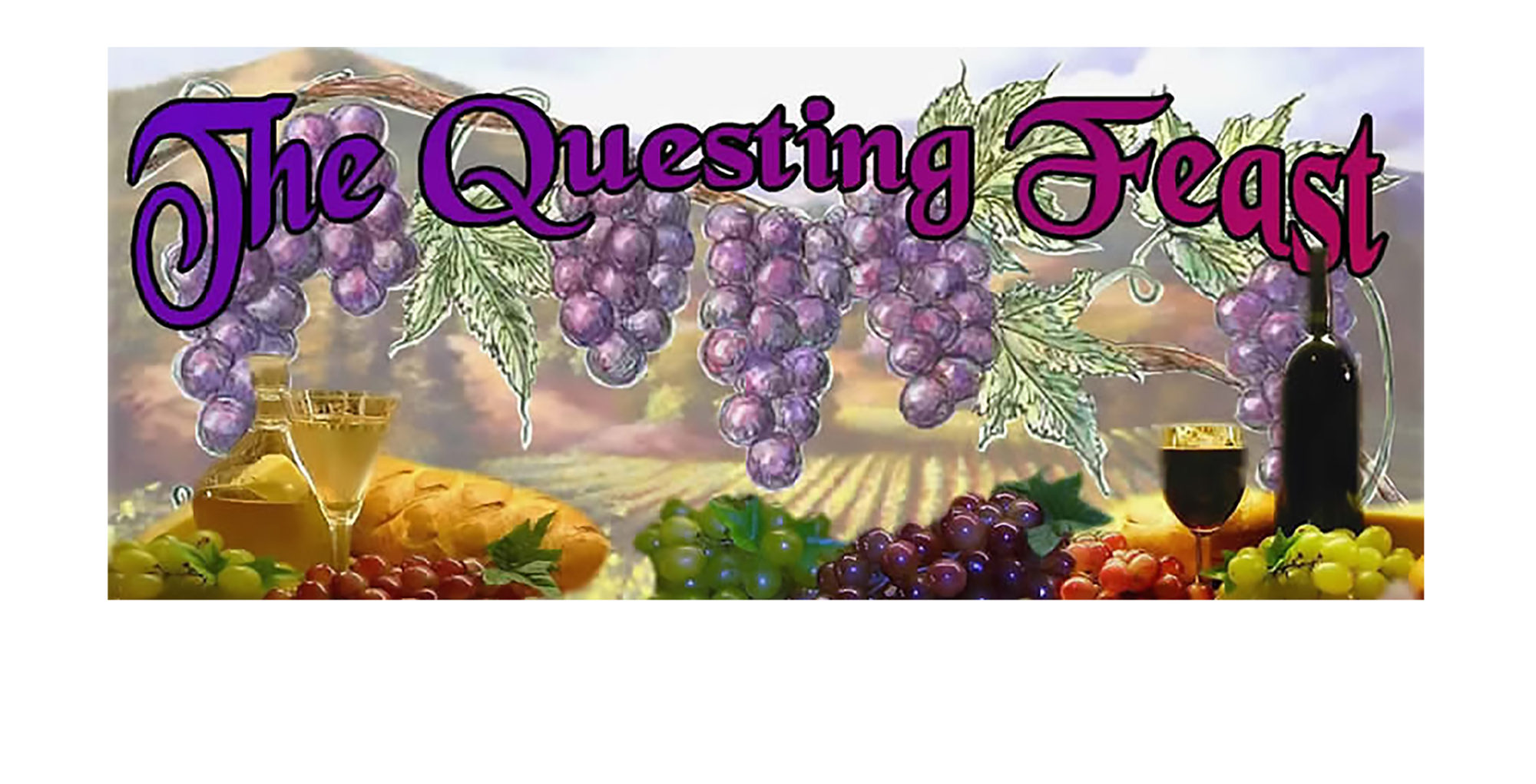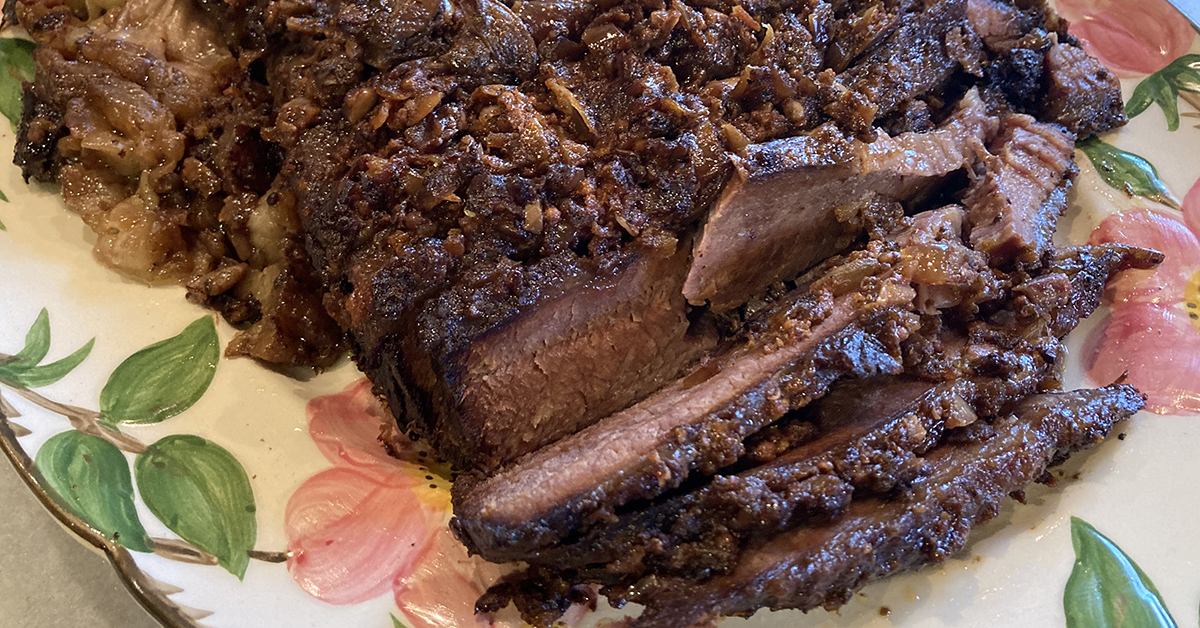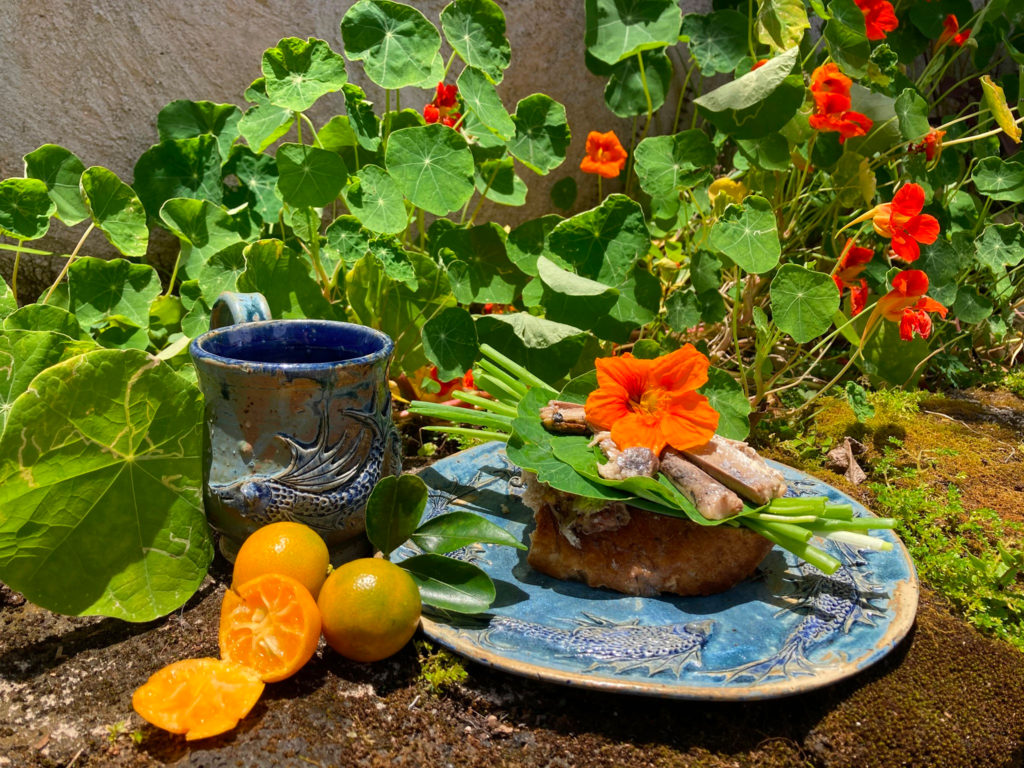by Dana Leilehua Yuen
Here is a beef brisket using one of Geraldine’s recipes, and my cooking method. I don’t think my mother ever owned a slow cooker. I have four – two big ones and two little ones.
This recipe says, “Damn the fat! Full speed ahead!” Remember, “fat is flavor!” As Geraldine would tell us, “We all eat way too much anyway.” Following her lead, I’d rather have a few bites of something scrumptious than a plateful of something bland.
Here are the seasonings for the rub. These are the approximate proportions. Adjust to your taste. Yes, the platter was made by Geraldine. (I miss her!) The little bowls are from China.
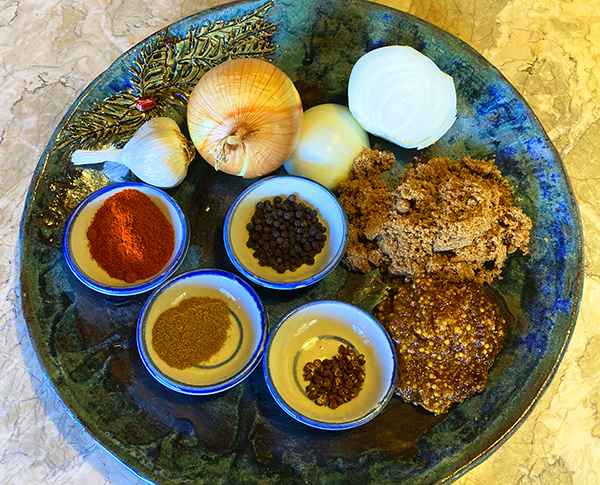
Ingredients
- Garlic
- Onions
- Paprika
- Cumin
- Black pepper
- Sichuan pepper
- Geraldine’s Sweet ‘n’ Hot Brown Mustard
- Brown Sugar
- Beef Brisket
Mince the onions and garlic very fine. Keep mincing!
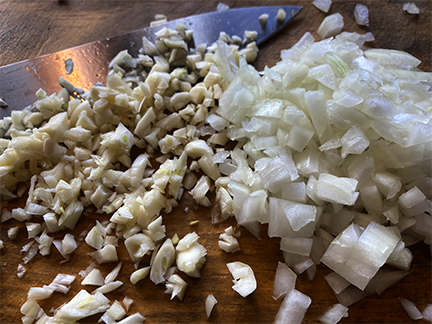
Run the peppers through your food mill and blend with the paprika and cumin. I love the fragrance of this blend! I reminds me of the spice blend used on the fried peas vendors would bring to the trains when I was in Indonesia.
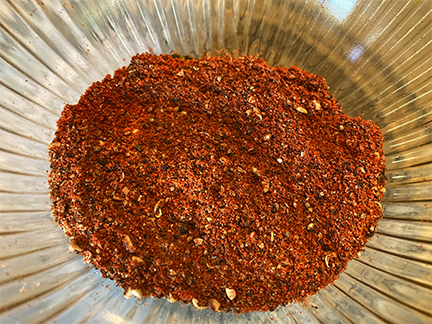
Now, thoroughly mix together the garlic, onions, spices, and sugar.
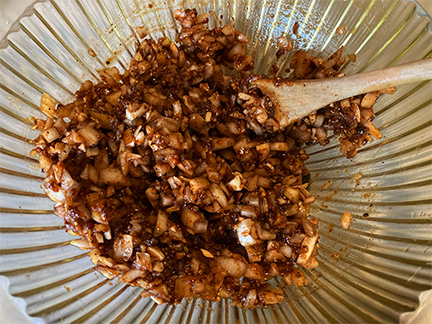
Take a lovely brisket and lay it on a platter with the fatty side up. Coat the top with the blend and let it stand, covered.
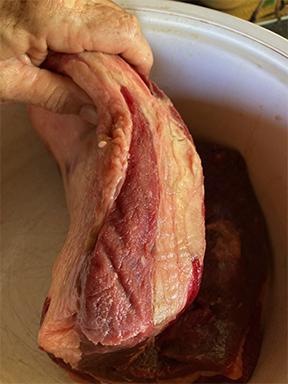
While the brisket is standing, chop up some nice roots and veggies for the slow cooker. You want a thick layer on the bottom. These are going to provide flavor and steam for the brisket, and keep it from lying in its fat as it cooks. The veggies will absorb a bunch of that fat, and some people may not want to eat them but I love the flavor. Just have a huge green salad and eat the pot veggies as a treat.
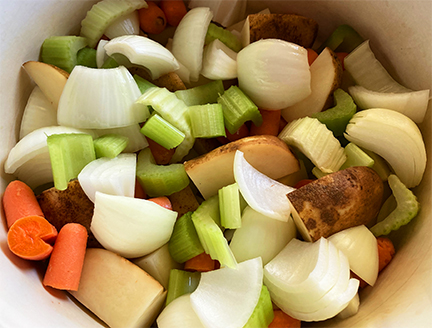
Set the brisket on top of the veggies and cook on high for a couple of hours, then reduce to low and cook overnight or until as tender as you like.
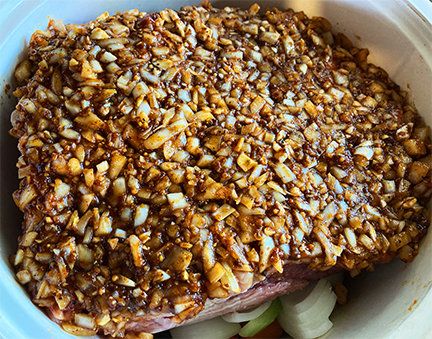
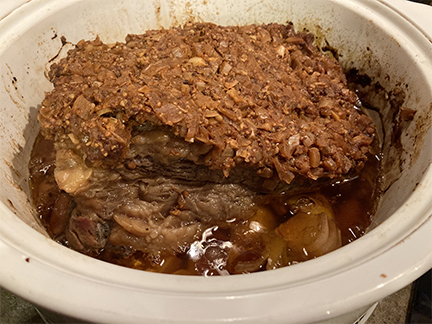
Remove the brisket and set it on a carving platter. Leave to set at least 15 minutes before carving.
The veggies will be drenched in the fat and juices.
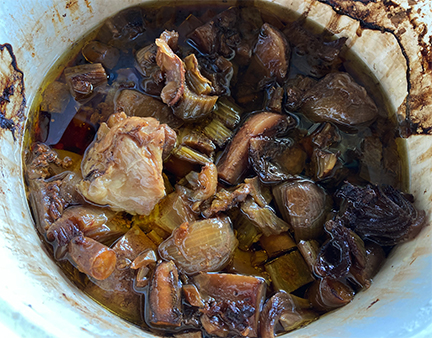
Remove and drain them. They are delicious, but very rich. Enjoy, just don’t eat too much!
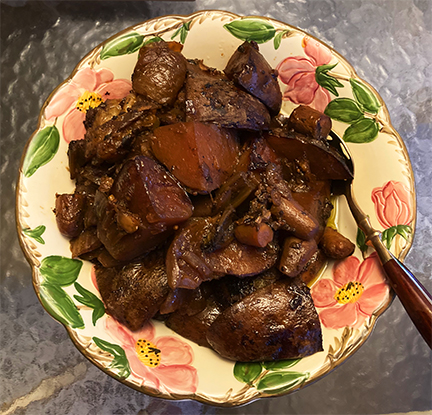
Keep warm while you prepare the sides and sauces.
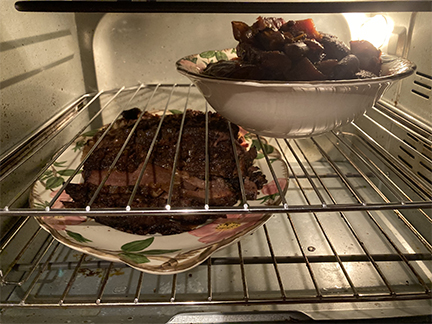
Separate the fat and the juices so you can serve the brisket au jus.
( “Au jus” means “with sauce.” So, you serve meat au jus, you don’t serve meat WITH au jus. That is redundant.)
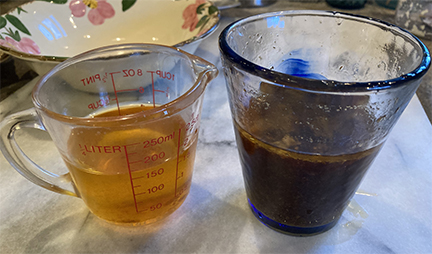
On the left is the fat. I like to save it and use it for cooking omelettes. You don’t need much, just enough to oil the skillet. On the right is le jus. Put it in a lovely heat-resistant pitcher and serve piping hot with the brisket.
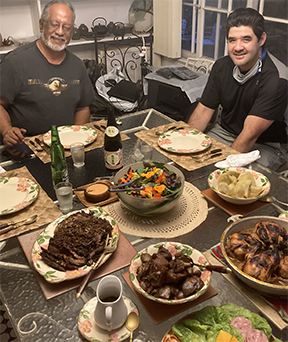
Enjoy!
On the left, my husband, Manu Josiah. On the right is our friend, Chris Okano, proprietor of Kitchen Umeko.
Shopping
- The brisket and salad greens (nasturtiums were home-grown) were purchased at The Locavore Store
- The sake was purchased at Kadota Liquor
